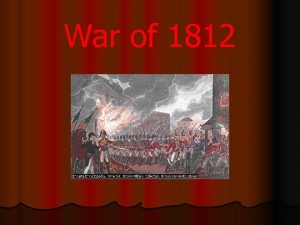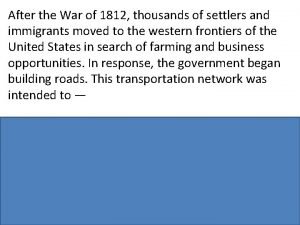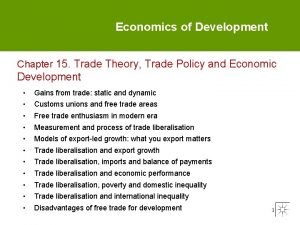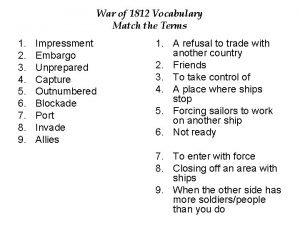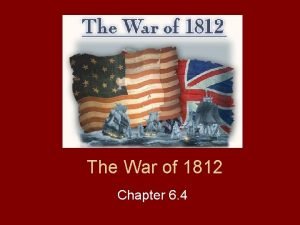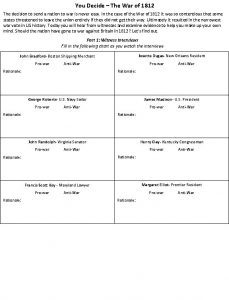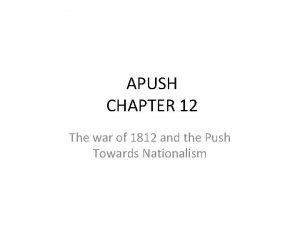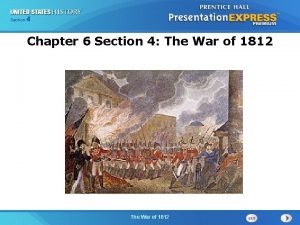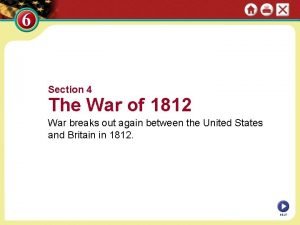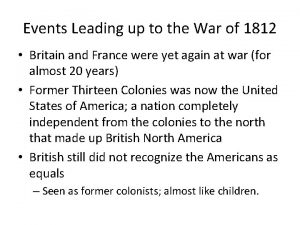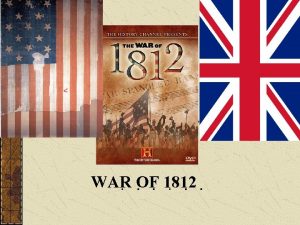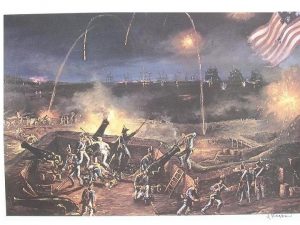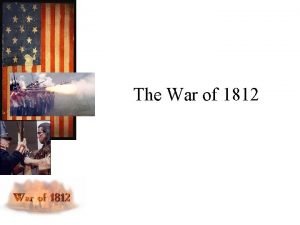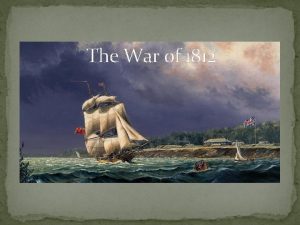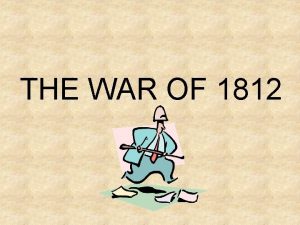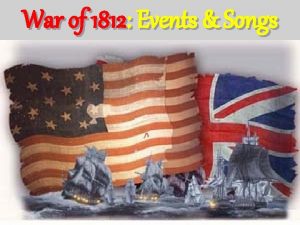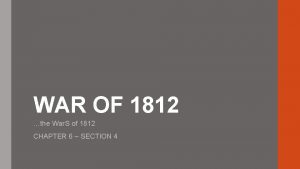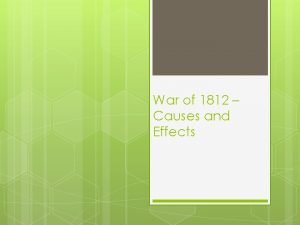War of 1812 Causes Free seas and trade











- Slides: 11

War of 1812

Causes Free seas and trade n n Stopping American ships Impressment Frontier pressures n Desire for land British Canada Spanish Florida n Conflicts with Indians Tecumseh and Prophet Battle of Tippecanoe n William Henry Harrison War Hawks n n Henry Clay, Kentucky John C. Calhoun, South Carolina Argued that war w/Britain only way to defend American honor, gain Canada, & destroy Indian resistance Declaration of war n Passed after Britain agreed to suspend its naval blockade

A Nation Divided n Pro-war – Southern & western states incl. PA & VT – Republicans n Anti-war – NY, NJ, & New England states – Federalists – New England merchants – “Mr. Madison’s War”

War of 1812 l Invasion of Canada l 3 -part invasion l l Detroit, Niagara, & Lake Champlain Americans burned York (Toronto) Easily repulsed by superior British forces Naval Battles l l l USS Constitution “Old Ironsides” l Sank British ship l Success offset by British naval blockade l l Most important naval battle of the war Captain Oliver Hazard Perry l Prepared the way for William Henry Harrison’s victory at Battle of Thames R. American privateers Lake Erie, 1813 l “We have met the enemy and he is ours” l Tecumseh was killed

• Chesapeake Campaign, 1814 • British defeated Napoleon increased troops in U. S. • British burn White House, Capitol, & other buildings • Attempt to take Baltimore • Francis Scott Key-”Star Spangled Banner”

• Southern campaign – Gen. Andrew Jackson – Battle of Horseshoe Bend, 1814 • Creek Indians defeated – British ally – Opened new lands to white settlers – Battle of New Orleans, Jan. 8, 1814 • 700 British killed, 1400 wounded • 8 US killed, 13 wounded • Fought 2 weeks after the war had ended

Treaty of Ghent § Both sides tired of the war § Britain had fought Napoleon over a decade § America recognized it could not win § Treaty of Ghent, Dec. 24, 1814 § Terms § A halt to fighting § Return of all conquered territory § Recognition of prewar boundary of US & Canada § Britain made no concessions about impressment, blockades, or other prewar grievances § War ended in stalemate


Hartford Convention, December 1814 n New England states opposed to war & Republican government – Radical Federalists wanted Constitution amended & secession as last resort – Secession was rejected – Proposals were adopted to limit power of Republicans – Jackson’s victory & Treaty of Ghent made Federalists appear unpatriotic – Federalists weakened

Legacies of War of 1812 US gained respect of other nations US accepts Canada as part of British Empire Federalist party no longer a national force New England sets precedent of talk of secession & nullification Indians loss of British allies forces them to surrender lands

American industry grew due to British blockade War Heroes n Future political leaders Andrew Jackson William Henry Harrison American nationalism n Belief that the future of the US lay in the West away from Europe
 War of 1812 free seas and trade
War of 1812 free seas and trade After the war of 1812 thousands of settlers and immigrants
After the war of 1812 thousands of settlers and immigrants Fair trade not free trade
Fair trade not free trade Dbq war of 1812
Dbq war of 1812 War of 1812 vocabulary
War of 1812 vocabulary The war of 1812 chapter 6 section 4
The war of 1812 chapter 6 section 4 Josette dugas war of 1812
Josette dugas war of 1812 Old ironsides apush
Old ironsides apush Chapter 6 section 4 the war of 1812
Chapter 6 section 4 the war of 1812 Section 4 the war of 1812
Section 4 the war of 1812 Leading up to the war of 1812
Leading up to the war of 1812 Turn in your homework
Turn in your homework
